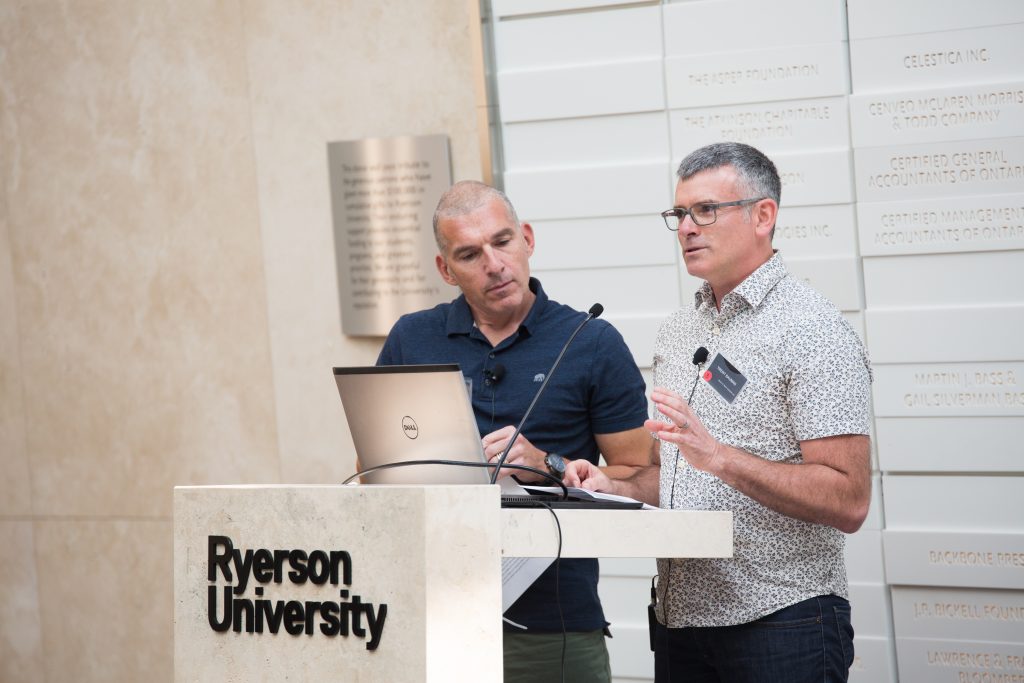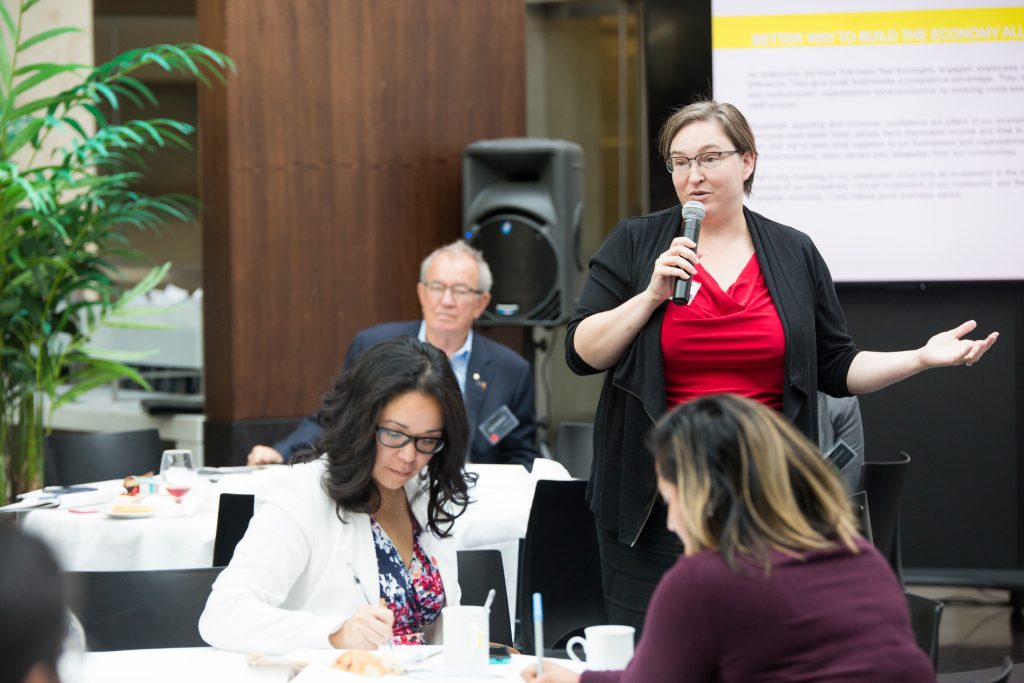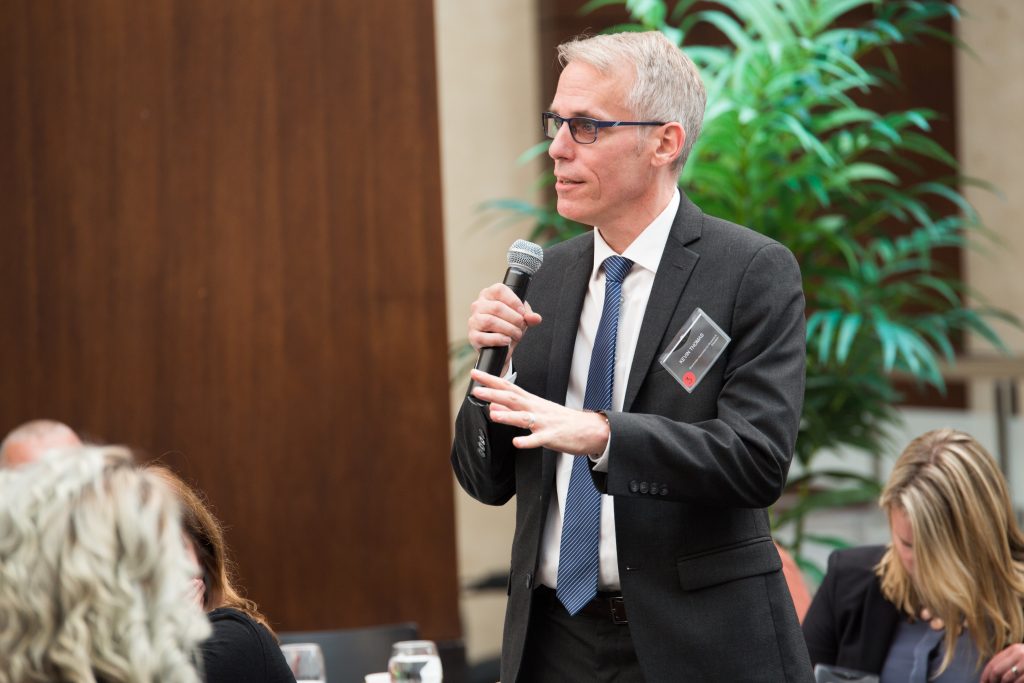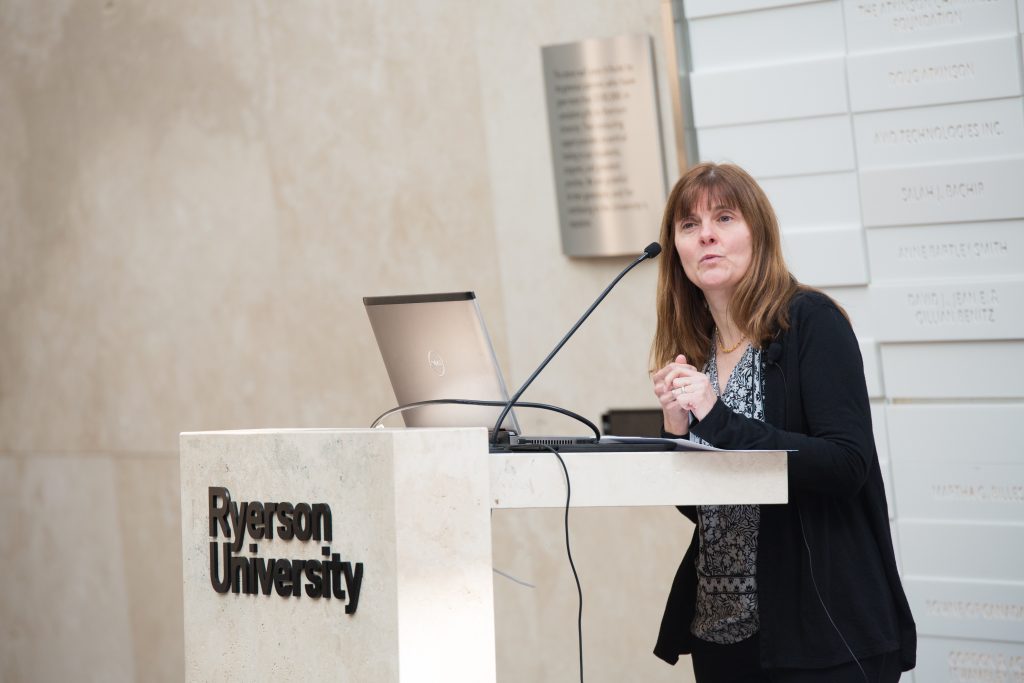
Art and I recently attended and presented a panel discussion on the topic of living wage at the Smart Employers Talk conference presented by The Centre for Labour Management Relations and Better Way Alliance hosted at Ryerson University. The conference brought together a employers, economists, researchers and policy analysts to explore the positive impacts of supporting a decent job strategy in Ontario. We met people from diverse sectors including health, insurance, retail, technology, engineering, and food services. Our panel consisted of five different companies and organizations who addressed social and business considerations for implementing fair wage and employment practices.

Our presentation outlined how Menno S. Martin became a Living Wage Employer in 2016. Our wage grid starts at the living wage set out each year by Living Wage Waterloo Region. We also work with our subcontractors to see that they are also paying a living wage to their employees. We see great benefits to living wages because it is an investment in putting our people first.
Investing in our staff rewards us with:
Long term staff: when people feel valued and well compensated, they want to stay working with us. This reduces training costs and our staff are fully immersed in our company culture.
Low absenteeism: people like coming to work and know that the value they contribute to the company is important
Better staff engagement: Our staff feel they are part of something a little bigger than a pay cheque. They feel comfortable contributing ideas and suggestions for improving their work and the productivity of the company.
Happy clients and raving fans of our company: Because we have long term, better engaged staff we can deliver a high level of service to our clients. Our staff know what is expected of them and deliver those expectations on every project. As a result we have happy clients who refer us to others so our business expends.
Five things I learned from five brilliant conference presenters

Angella MacEwen introduced me to a new term, new at least to me: Monopsony. Monopsony is a market situation in which there is only one buyer of a service or product. In the employment market, a large employer could have the power to pay employees less than the work is worth if they are the only employer, but there are more workers than available jobs. An example could be a processing plant in a smaller community who is the single employer. When the plant employs the majority of people who live in the community but pays them a low wage, this can have a negative impact on the local economy because people don’t have money to spend in the economy in which they live.

Yogendra Shakya presented about the social determinants of health and their connection to low wages. Poor working conditions, including low wages, contribute directly to poor health of employees. This has a significant negative impact on the overall economy in Ontario.

Kevin Thomas presented on the role of shareholders and how institutional investors can make a difference and support a sustainable economy. He referred to studies showing that companies who invest in their employees can be more profitable over the long term rather than companies who are driven just by quarterly results. Successful companies see employees on the asset side of their balance sheet rather than the liability side.

Jessica Carpinone created a bit of a stir with her personal stories of exploitation, low wages and poor working conditions within the food industry. She’s a real firecracker and tells it like it is – I found her very inspiring and refreshing! She combats these challenges by becoming her own boss and making a commitment to pay living wage for herself and her employees. Life in the food industry still isn’t easy because of society’s reluctance to pay a decent price for food and food services. Generally, people are looking for the lowest price for food and don’t realize what suppliers are doing in order to give those low prices. They are cutting corners on working conditions, paying very low wages and offering only part time work with no benefits. Jessica spends much of her time educating her clients and customers about the true costs of food.

You think finding a decent job as a skilled worker is tough? Try finding a good job as a new immigrant, a social marginalized person or someone recovering from a serious mental health issue. Kim Patel, Director of Employment & Training at St. Stephen’s Community House in Toronto’s Kensington Market area presented on the complexities of our employment system for some of Ontario’s most vulnerable workers.
Patel also drew attention to the challenges of being a social service organization and trying to pay living wages. She highlighted the fact that agencies and government departments who fund social service organizations, including the provincial government who’s policy will raise the minimum wage, need to revise their funding models to reflect an increase in wages.
Small fish in a big pond
In many ways we felt like a small fish in a big pond at this conference. We are a small business in St. Jacob’s, Ontario but we were surrounded by people who were experts in the many fields. We operate our business in a simple way by using our company philosophy Putting People First and by following our business plan of Moving Generally in the Right Direction.
This conference was refreshing. It was great to hear so many positive examples of living wage and sustainable business. Right now, general discussion about Ontario’s proposed minimum wage increase tends to be predominantly negative. I agree, it’s difficult running a business and some industries may have more challenges than others when it comes to implementing an increased minimum wage. However, in our experience, when we put our people first, that’s when we thrive.
That has been our company philosophy for 75 years and it seems to serve us well.
-Trent










